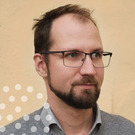Contact
Work group
Economy
Václav Rameš currently works at the Institute for Contemporary History at the Czech Academy of Sciences, where he focuses on the transformation of industrial relations in the late 1980's and 1990's in the post-communist central Europe. In 2021, he published my dissertation "Market without adjectives, or economic democracy?", in which he examined the political conflicts over the post-communist ownership transformation and its "futures past". He graduated from the Faculty of Arts, Charles University in Prague in 2020, and gus research focus is mostly on social history of communism and post-communism, intellectual history and labour history. In Munich, he would like to have a closer look at how post-communism occurred at the transnational level.
Research Group
Economy
Research Project
In Search of a New Balance of Power. Transforming Industrial Relations in Late Socialism and Post-Socialism from the Perspective of International Agents (Late 1980s – Early 2000s)
The research project aims to examine the development of industrial relations in late socialism and post-socialism in Central Europe. It focuses on analysing how international agents (e.g. International Labour Organization, Internationaler Bund Freier Gewerkschaften, Eurochambers et al.) reacted to deep changes which occurred in Central Europe between the beginning of the perestroika in the late 1980’s and adjustment of national labour legislation to the EU standards at the turn of the 1990’s and the 2000’s, prior to the EU’s eastern enlargement. It examines policy transfer between international and national agents and tries to answer these questions: What policy proposals did the international agents formulate for reconstructing the system of industrial relations in post-communist Europe? How did they assess the potential opportunities (e.g. strengthening their international role) and threats (e.g. flow of cheap labour from the East) which emerged after the demise of local dictatorships? What futures did they envisage when facing the sudden transformation of labour and business relations in Central Europe?


